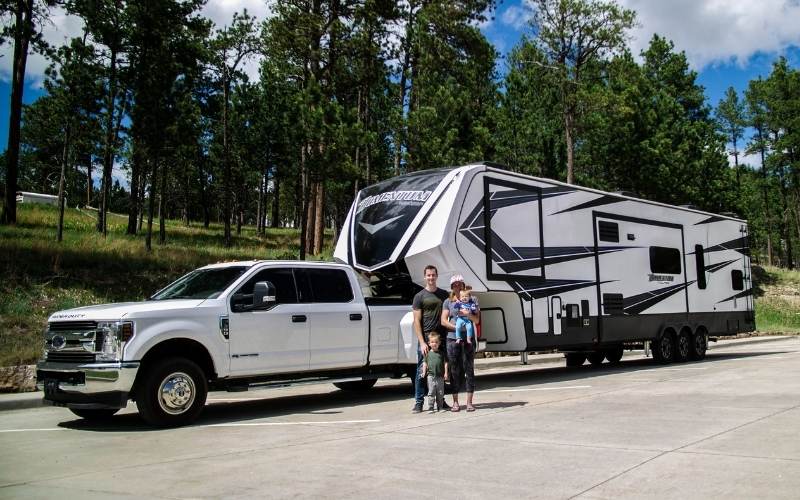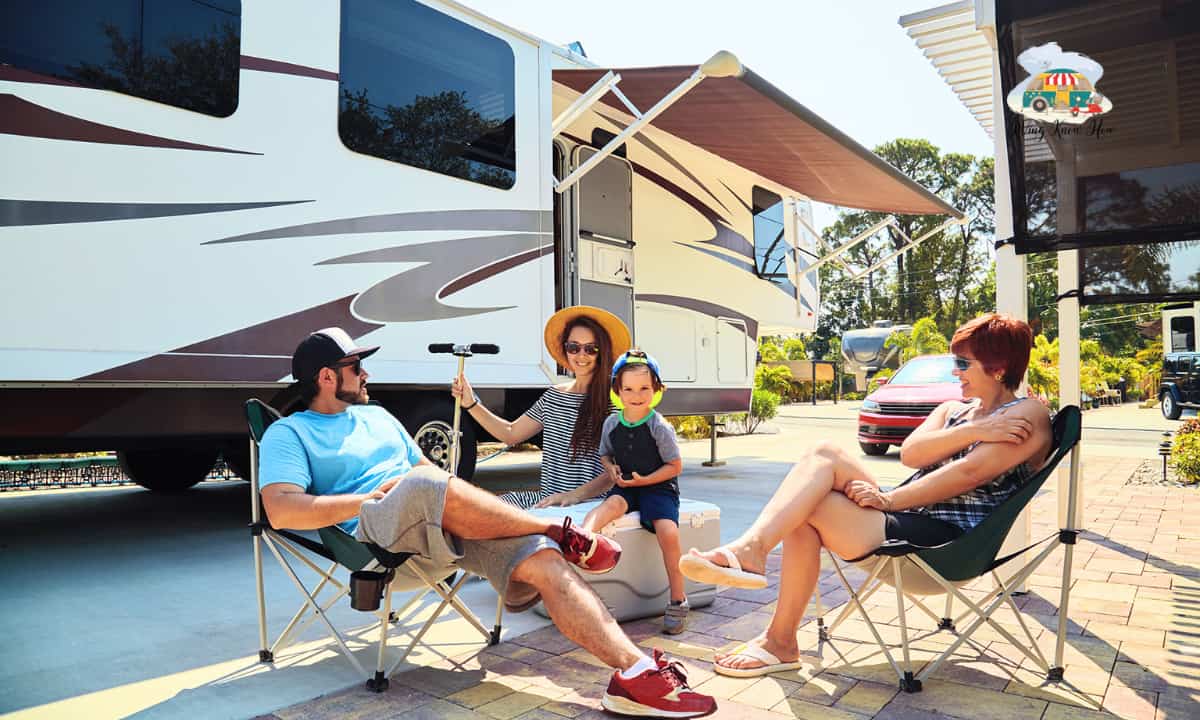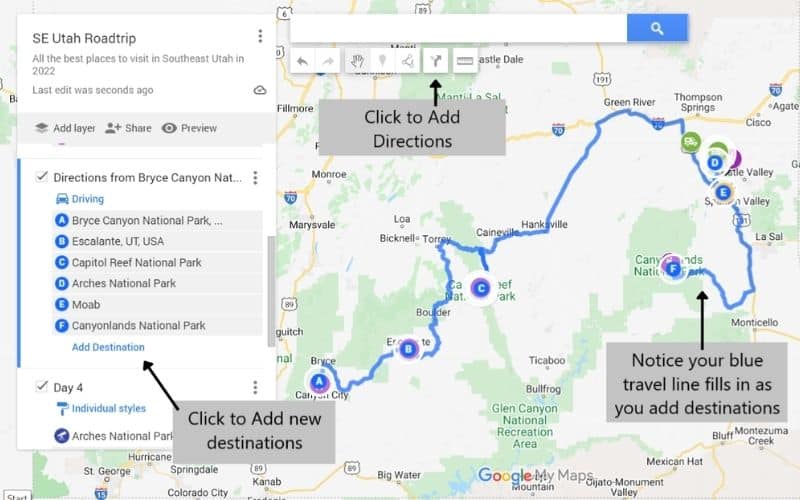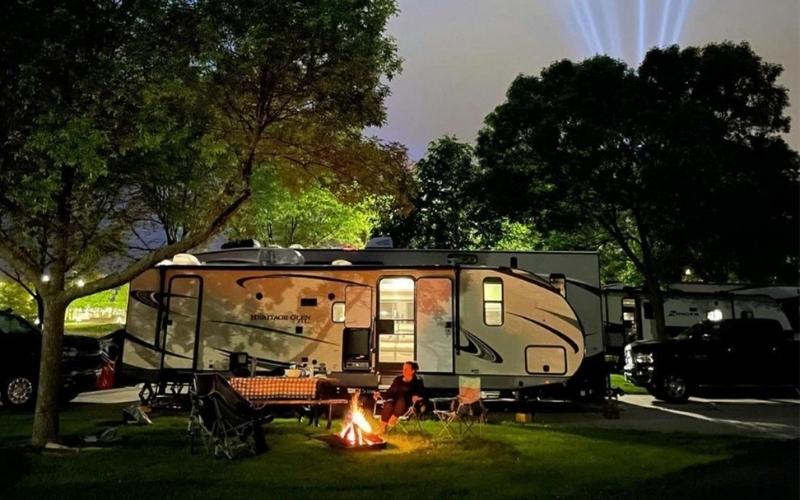Are all RVers retired? Do RVs require a ton of regular maintenance? Is it impossible to find campgrounds if you have a super long RV?
What RV living myths and misconceptions have you bought into?
As an RVer for most of my childhood and adult life, I’m well versed in what it takes to live comfortably in an RV. You might be surprised that it actually takes less than you think.
Plus, today’s modern RVs have so many luxury amenities that living in them isn’t much different than living in a downsized version of a residential home.
If you are considering RV living but you’ve heard some rumors that are holding you back, we are going to use this guide to dispel some of the most common RV living myths and misconceptions!
Myth #1: Most RVers Are Retired

Traditionally, RVing may have been an old folks’ game. Most of us, however, are probably following at least one young couple or family on social media that live in an RV full-time.
Millennials are traveling more than previous generations on the whole. A lot of this travel is domestic here in the United States, as we really do have so much territory to explore.
In addition, new home prices have steadily been on the rise in recent years. This has priced some younger folks out of the market.
As an alternative, buying an RV looks much more economically favorable as younger families save up for their dream homes.
All of this adds up to the clear fact that RVing is no longer reserved for old folks and retirees. And I didn’t even mention the fact that we can work remotely more easily now than ever.
So you’ll definitely find plenty of RVers out there living that ‘semi-retired lifestyle because they have the freedom to work from wherever their rig is parked!
Myth #2: An RV with ‘Residential-Style’ Appliances Is Just Like Living In a Regular Home
The only real difference between an RV with regular appliances and one with residential-style appliances is size.
Sure, you will have more fridge space, a larger cooktop, a deeper sink, and more counter space.
Unless you previously lived in a tiny home, however, you will have to make a few adjustments when living in an RV.
You will probably have to do dishes as you prepare and cook dinner because you won’t have enough sink and counter space to both prepare food and scatter dirty dishes about for later.
You won’t be able to use water as freely and nonchalantly as you would in a residential home because your freshwater and grey water tanks have a limited capacity.
Residential-style appliances also don’t address the issue that cooking in an RV can heat the entire dwelling up quickly.
So when you accidentally burn those breakfast potatoes, the smoke is going to fill up your entire RV pretty rapidly!
Myth #3: RVing is All About Spontaneity!
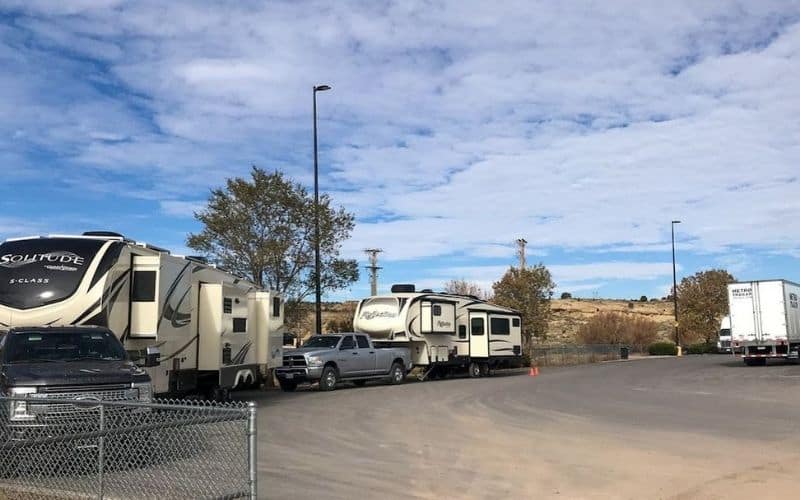
Ha! On the contrary, planning your travels is arguably much more important when you are RV living than when you are just road tripping in a car or truck.
That’s not to say there can’t be room for spontaneity in RV living, but it’s always helpful to know at least a little bit about the destinations you are heading towards.
One major reason for this is that not all locations are super-friendly about RVers parking in their lots overnight for free.
For instance, Wal-Mart parking lots have traditionally been an acceptable place for RVers to rest overnight when between destinations.
While that is still true in most locations, parking overnight in Wal-Mart lots has been banned in some major metropolitan areas (see Southern California).
Nobody likes having someone knock on their door and ask them to relocate at two o’clock in the morning!
Fortunately, there are plenty of RV resources out there to help you plan your travels accordingly.
Sites like RV Trip Wizard and Overnight RV Parking, for example, are great for route planning and camping selections.
Myth #4: It’s Easy to Save Money When You Live in an RV
This was actually one of the biggest disappointments for me when I bought my first RV.
While boondocking is a great way to save on overnight camping fees, the overnight rates at some RV parks can be surprisingly high.
According to Roads Less Traveled, the average cost for a nightly RV site rental is between $30 and $50.
If you decide you want to say in the same RV park on a monthly basis, you will probably wind up paying somewhere between $500 and $1500 per month.
Of course, that is all going to be location-dependent. If you are willing to spend some time in more remote locations that are less popular for other RVers, it will be easier to save money.
The only downside of that can be traveling farther to find a place to refill and dump your rigs holding tanks.
Myth #5: Bigger RVs Are Better For Families
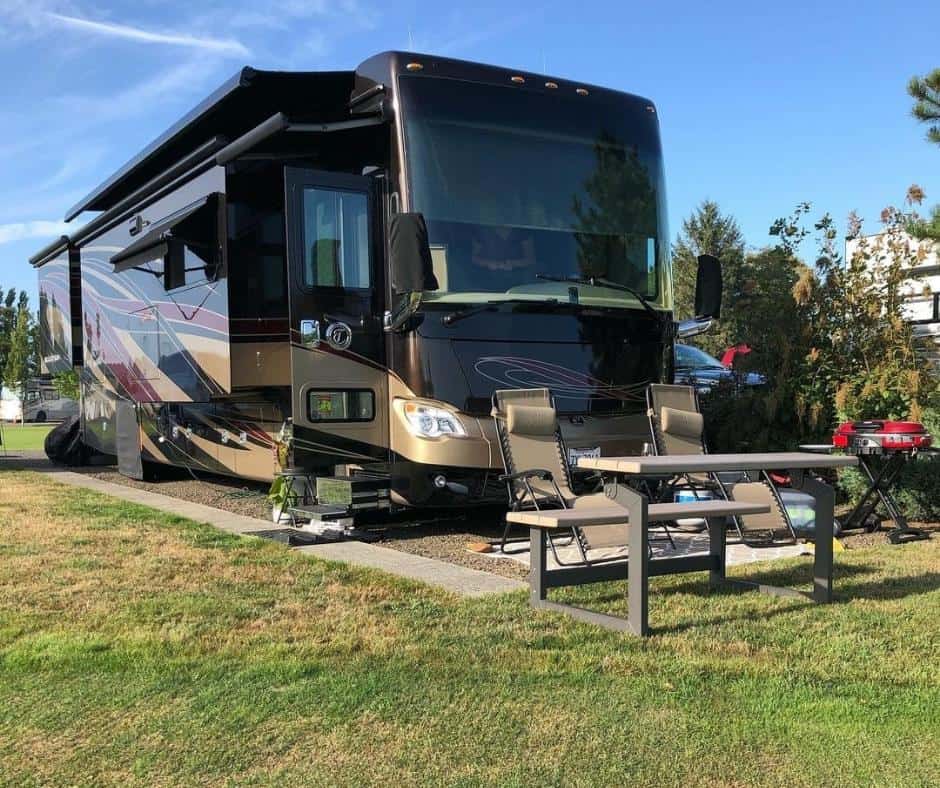
Okay, so it is impossible to argue this one when it comes to the amount of space inside the RV.
And from having traveled once with six males in their 20s and 30s in one RV, I know how quickly an RV can feel cramped.
But larger RVs can make it more difficult to find campgrounds. Not all campgrounds have sites that can accommodate RVs that are more than 30 feet long.
And even if their sites are longer, navigating tight corners on the drive into the park can be very risky in a larger RV.
In general, private campgrounds tend to have larger sites than campgrounds in state and national parks. That said, the ideal RV length for maximizing your camping options is between 25 and 30 feet.
If you have a large family, you are actually better off getting a shorter RV with 2-3 pop-outs than a longer RV with fewer pop-outs. For more information on RV length limits, check out this article.
Myth #6: Summer Is The Best Time For RVing
Well, it is hard to argue that summer is the most popular time for RVing. But I wouldn’t go so far as to say it is actually the best time.
In large part, it is much harder to find campgrounds with availability during the summer months.
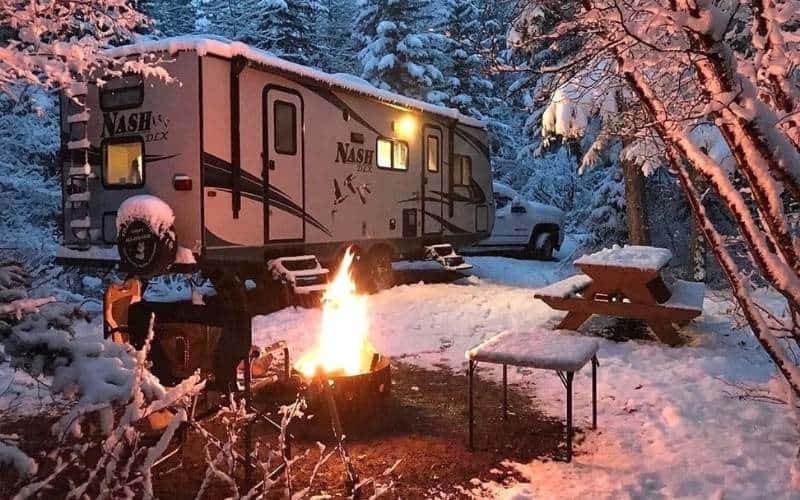
You will have to plan your travels much further in advance and, if you fail to do so, you may end up staying in more parking lots than you would like.
From my experience, the spring and fall months are actually the best time for RVing. In the industry, these are sometimes called the ‘tweener’ seasons.
That is because some locations are more popular in the summer while others are specifically winter destinations.
It’s not too hard to evaluate whether a destination will be more popular in the summer or the winter.
Obviously, RV parks in Florida and Southern California are very popular winter destinations for northerners seeking to avoid cold weather.
Conversely, most RV parks in the northern parts of the country will only be open during the summer months so that they don’t have a bunch of silly RVers getting stuck when the snow starts to fall.
All that being said, you can avoid both of these popular times if you do most of your RVing during the spring and fall.
Also, most RV parks will actively advertise their ‘peak season’, so it’s always worth noting that when you are planning your RV adventures.
Myth #7: Dumping RV Holding Tanks is Gross
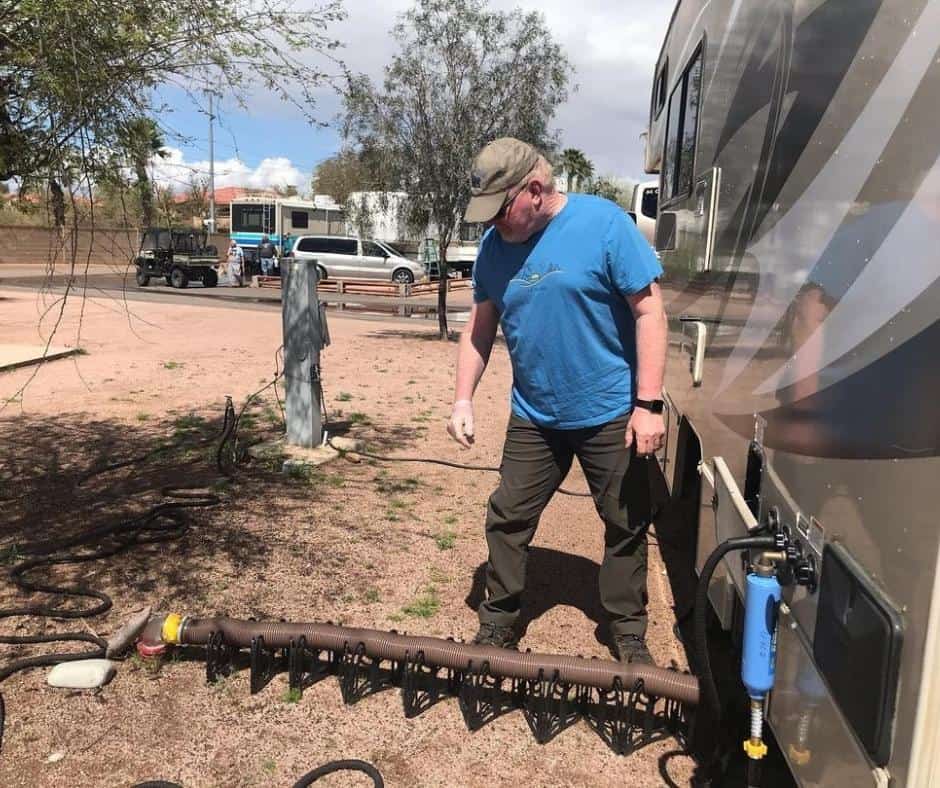
Yeah, nobody really likes to deal with human excrement (I hope!). But it’s not like you are one of the RV park hosts that have to clean the communal bathrooms at the center of the park loop regularly.
Unless you are regularly inviting strangers into your RV to use the lavatory, you are only dealing with your own you-know-what.
Plus, RVs are designed so that your waste goes straight from your tanks, through a fully enclosed sewer hose, and into the drain without it making any contact with you.
That being said, I’ve heard many horror stories about disgusting events ensuing when new RVers dump their tanks for the first time.
So here are some tips to help you dump your holding tanks as cleanly and safely as possible:
-
Dump early and often. The more frequently you clean out your tanks, the less smelly they will be when you do.
-
Wear disposable gloves (and maybe even a face mask). I don’t care if you’re the only one in line at the RV dumping station who is doing it. You’ll also be the only one that for sure doesn’t get s**t on their hands.
-
Double-check the connections at both ends of your sewer hose. Make sure both ends are secure to your tank and into the drain before opening the valves.
-
Weight the drain end of your hose. Many dump stations don’t make it super easy to screw the end of your sewer hose into the drain. So it’s a good idea to use a large rock to weight the end of your hose to prevent it from moving once your sewage starts to flow.
-
Open valves slowly. There can be a lot of back-pressure when you first open your drain valves. Open them half or even a quarter of the way to alleviate that initial pressure for 1-2 minutes before opening the valves all the way.
-
Dump black water before greywater. The black water is the really nasty stuff. Greywater is just mainly soapy water from your shower and sinks. So use that “cleaner” water to flush the nastier stuff out of your sewer hose naturally.
-
Flush clean water through the hose. Once your tanks are empty, close the valve to your grey water tank and refill it with 1-2 gallons of fresh water. Then, flush that water through your hose to clean out any remaining remnants.
-
Detach the end of the hose attached to your tanks first. Leave the end going into the drain and lift and shake the hose from RV-to-drain to clean it out a little more before putting it back underneath your rig.
While we can’t 100% guarantee that you will have a perfect RV dumping experience every time, these tips will help you minimize the “grossness”.
Myth #8: All RVers Live The Quiet Life
Unfortunately, RV parks and campgrounds tend to be noisier than you might think.
If you seek boondocking sites using apps like The Dyrt and iOverlander, you can definitely lead a quieter lifestyle when RV living.
Not all RV parks are this way, but the relatively limited space between sites often means that you can hear it whenever your neighbors are having an argument.
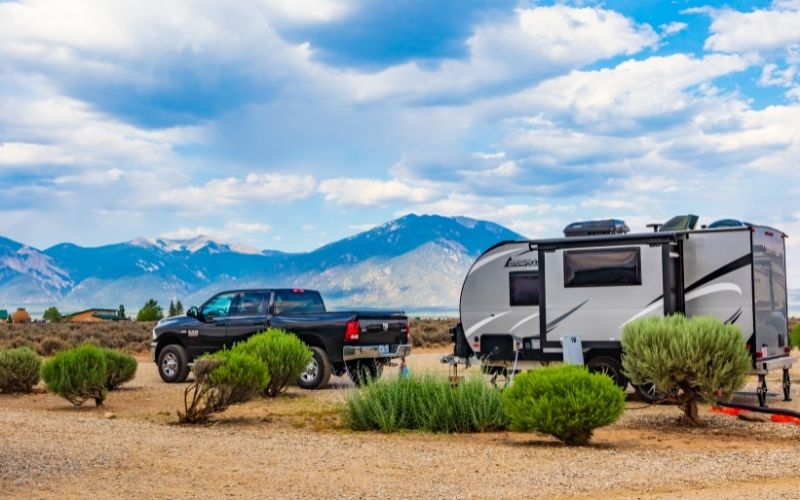
As a quick aside, I had a recent run of 3-4 nights in a row where I ended up in a campsite with a domestic argument taking place on the site next to me. It really harshes my vibe!
That said, most RV parks have quiet hours that politely encourage visitors to keep their volume down while most folks are trying to sleep.
This also restricts RVers from running their generator overnight, which hopefully makes it easier for you to sleep.
Interestingly, boondocking sites can sometimes attract louder visitors. That is often because these kinds of sites will have fewer rules and regulations.
Plus, they will also be patrolled less frequently by any sort of manager or camp host.
If you are in an RV park that does have quiet hours, however, don’t be shy about asking your neighbors to observe those hours or filing a complaint with the camp host if you are camped next to repeat offenders.
Myth #9: You’ll Have No Repair Worries With the Manufacturer’s Warranty
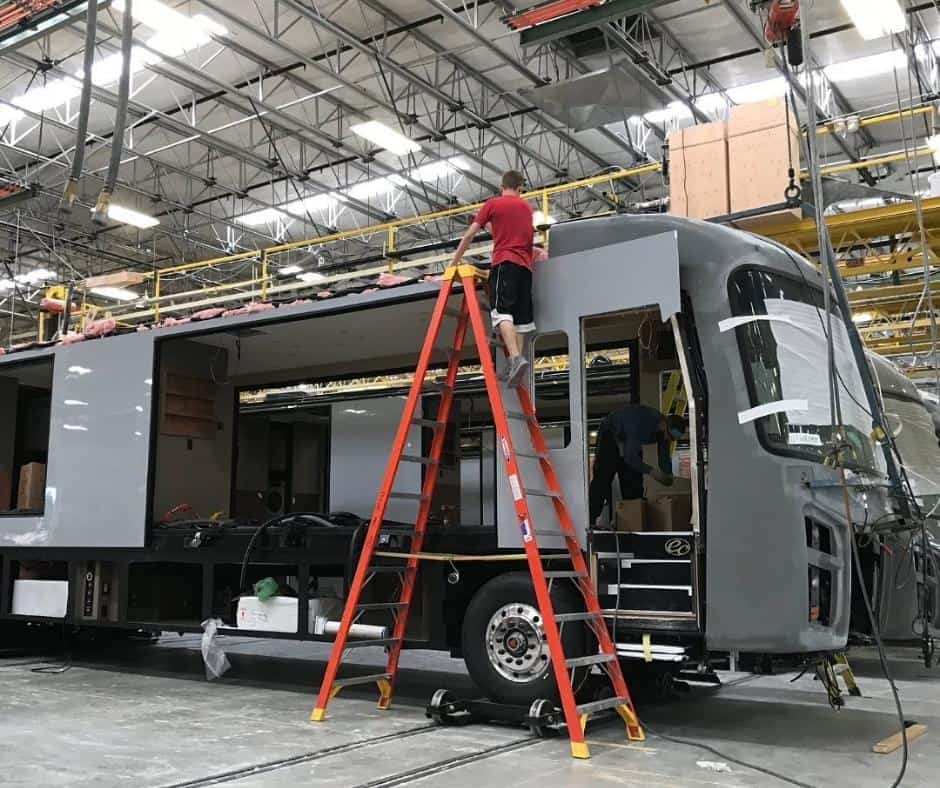
Unfortunately, not all RV manufacturer warranties are everything they are cracked up to be.
The main problem is that some manufacturers only cover repairs made at a small number of shops.
If you break down a long way from a manufacturer-approved or dealership-sponsored shop, you may be stuck covering the costs of those repairs even if your RV is still under warranty.
That is why it is so important to understand the terms of your manufacturer’s warranty in great detail before you buy a new RV.
Also, it can sometimes be beneficial to invest in an extended warranty if you know you will be driving and living in your RV a lot over the first few years of having it.
Myth #10: RVs Are A Massive Investment
If you are looking at some of the best class A luxury RVs, then yes, you are going to wind up paying as much as you would pay for a small house in some places. The good news is that there are plenty of affordable RVs out there.
The reality is that average RV prices vary a lot. It really depends on the type of RV, truck camper, or travel trailer that you are interested in.
If you were to account for the full range of used and new RVs and travel trailers, you would find a huge range of costs starting at just $1,000 and extending up to (and probably above) $300,000.
On that spectrum, class A RVs tend to be some of the priciest options. On the other end, towable popup campers are going to be some of the most affordable options out there. So it all depends on the type of RV or travel trailer you are interested in.
Of course, there are other costs associated with RV living beyond just the price of the RV. Gas, campground stays, and RV maintenance are a few examples.
But it is certainly possible to get into RV living for under $10,000 (or even less) if you are living on a budget.
You just may need to be willing to buy a used RV and do a few upgrades to make it more comfortable and road trip ready!
Myth #11: You Need A Special License to Drive an RV
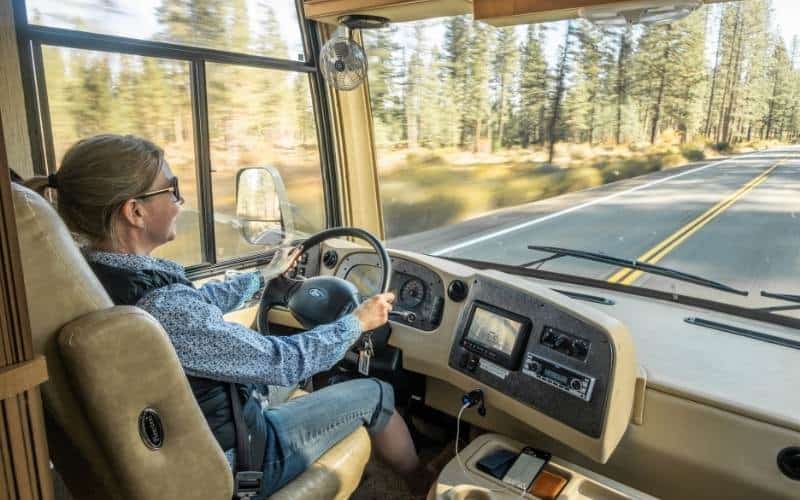
Surprisingly, you don’t need a commercial license to drive even the largest of RVs out there.
This can create some animosity between RVs and drivers of semi-trucks and other transports.
But if you are worried about having to invest time and money in a class to get a commercial license before you buy an RV, it is not necessary!
On a personal note, however, I went through the process of getting a commercial license for driving a 16-passenger cargo van years ago.
There was a lot of helpful information in that course when it comes to checking all of the drive systems of your RV before you get on the road.
So I would say that it wouldn’t necessarily hurt you to take a commercial license course as an RVer.
It isn’t a requirement, but it might help you avoid larger RV mechanical issues by giving you some insights into problem areas to focus on every time you are about to do a long drive.
Myth #12: RVs Get Dirty Super Fast
I grew up with someone who is, quite frankly, obsessive-compulsive when it comes to cleanliness.
I can guarantee you that our RV was almost never dirty because of the preparations made to keep it clean.
Keeping your RV clean doesn’t require sweeping, dusting, and mopping every day. It does require some forethought to keep as much dirt outside as possible.
For starters, get yourself one of the best RV outdoor rugs to place outside your door. Ideally, get a mat that is as close to the dimensions of your RV awning as possible.
This will give you a comfortable outdoor surface for barefoot lounging while minimizing the amount of dirt that gets tracked into your RV.
If you are also worried about living in filth in an RV, here are a few more tips to help you keep your RV clean:
-
Replace rugs with laminate flooring. Makes it much easier to sweep dust and dirt out of your RV without it sticking in your rug.
-
Get a foot bath. Our cheap version uses a kitty litter pan that we fill with water and hang a towel next to. Dunk your feet and wipe them off before you track mud into your RV.
-
Install a central vacuum. If your RV doesn’t have one, install a central vacuum underneath one of the seats at your kitchen table. You’ll love the ease and convenience of vacuuming seats, couches, and other surfaces without having to awkwardly fetch a portable vacuum from a hard-to-reach place every time.
-
Create an indoor drying area. For the rainy season, you will need a place to hang jackets and other wet gear. Place a few rubber or plastic shoe mats underneath this area so water doesn’t drip onto your RV’s rugs or laminate flooring.
-
Create a cleaning calendar. Many of us can benefit from doing this in our homes too. Set a weekly time for an all-hands-on-deck cleaning effort. This will minimize the amount of time each individual has to spend cleaning and get everyone back to enjoying the fruits of RV living!
Keeping any space clean just requires effort and discipline. It just becomes even more important for RV living because dirt and grime often become much more noticeable when you are living in a smaller space.
Conclusion
Once you tear that initial Band-aid off and really get into it, RV living will feel easy and natural.
Of course, it does require a bit more organization and tidiness than is allowed in a larger residence. You just can’t have too much clutter lying about when you live in a small space.
That being said, everyone has their own living style and preferences. So if you thrive in a cluttered environment, be my guest!
We hope that dispelling these common RV living myths and misconceptions has re-energized your interest in RVing and increased your overall RVing Know How! If they brought up any follow-up questions, we would love to hear from you in the comments below!

